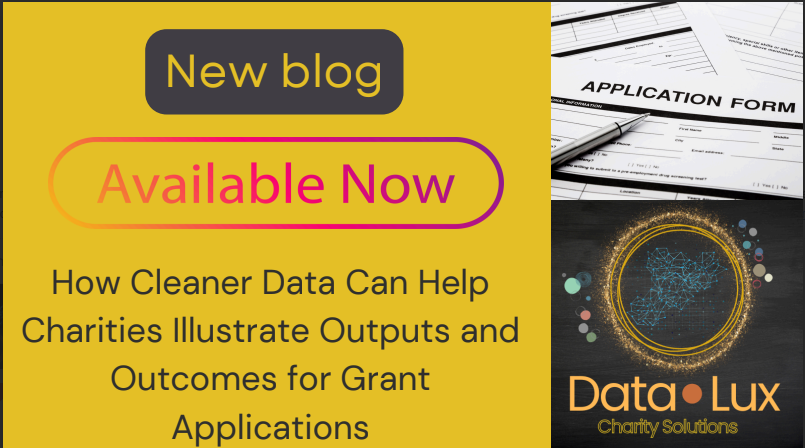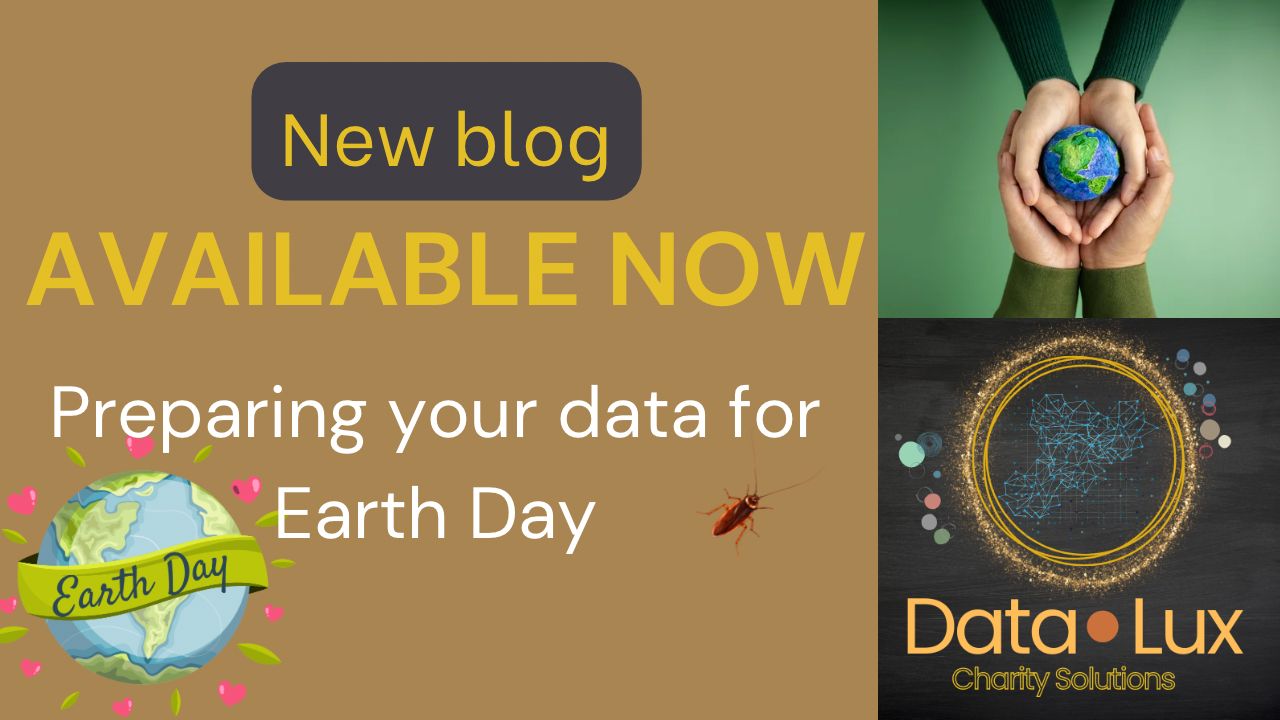When charities apply for grants, competition is fierce, and a clear, compelling case for support is crucial. At the core of this case lies one of a charity’s most valuable assets: data. High-quality, well-organised data can be the key to demonstrating a charity’s effectiveness and securing essential funding. Clean data helps charities illustrate their outputs and outcomes in a way that resonates with funders, proving both immediate impact and long-term change. Here’s how cleaner data supports charities in grant applications by providing clarity, building credibility, and reinforcing transparency.
Why Clean Data Matters
Clean data refers to data that is accurate, consistent, and free of errors or duplicates. It’s data you can trust to convey the true story of a charity’s impact. Messy data—data that’s inconsistent, incomplete, or outdated—can lead to inaccurate reporting, reduced credibility, and missed funding opportunities.
Clean Data in Action: Outputs vs. Outcomes
In grant applications, charities often need to demonstrate both outputs and outcomes:
- Outputs are the immediate, measurable products of an organisation’s activities. For instance, a charity providing educational resources might report outputs as the number of workshops held, people trained, or resources distributed.
- Outcomes refer to the broader, long-term changes resulting from the charity’s activities. In an educational context, outcomes might include increased literacy rates, higher employment among participants, or improved community well-being.
Data on both outputs and outcomes needs to be accurate, up-to-date, and presented clearly—exactly what clean data provides.
The Benefits of Clean Data for Grant Applications
1. Clarity and Consistency in Reporting
Clean data means a charity has organised information clearly and consistently, which makes it easier to track progress, measure impact, and draw connections between outputs and outcomes. For example, a charity can clearly show that 1,000 meals distributed last month led to a 20% decrease in food insecurity, providing concrete numbers that funders appreciate.
2. Enhanced Credibility with Funders
Grantmakers need to trust that an organisation will deliver on its promises, and clean data helps build that trust. By maintaining high-quality data, a charity can show its commitment to transparency and accountability, demonstrating that it has the organisational skills needed to achieve and measure success.
3. Better Storytelling with Data-Driven Narratives
Clean data allows charities to build powerful, data-driven stories. Instead of vague claims like “lives are improved,” a charity could report that “90% of participants in our job-training programme found employment within six months.” Specific metrics like these, backed by data, provide compelling evidence of success.
4. Effective Use of Resources
Clean data reduces the time needed to verify information and rework datasets, allowing more time to be spent on creating compelling narratives and evidence-based outcomes in grant applications. When data is organised and reliable, pulling reports on programme reach, participant demographics, or community impact becomes efficient.
5. Meeting Funder Requirements with Ease
Many funders have specific reporting requirements, requesting particular formats or types of evidence to demonstrate their money is making an impact. Clean data is adaptable, making it easier for charities to customise reports to meet funder needs. It also positions charities to answer follow-up questions with confidence, having consistent and complete data at their fingertips.
Making the Case with Clean Data: Sample Scenarios
Consider these examples of how clean data translates into more effective grant applications:
- Youth Mentorship Programme: A charity might track data on mentorship sessions held, participant engagement, and post-programme success rates. When a grantmaker asks for outcomes, the charity can show a direct link between the mentorship programme and a 30% improvement in school attendance among participants.
- Health Services Outreach: A charity providing healthcare in underserved areas could use clean data to demonstrate how many patients were treated and how many showed improvement in specific health metrics. Funders are more likely to support a programme that provides concrete, data-backed health outcomes.
Conclusion: Cleaner Data, Stronger Applications
Clean data is the backbone of effective grant applications. By presenting funders with clear, credible, and compelling evidence of both outputs and outcomes, charities not only improve their chances of securing grants but also position themselves as transparent, accountable organisations. With consistent data-cleaning practices, even small charities can make a big impact, proving their value and commitment to the communities they serve.




